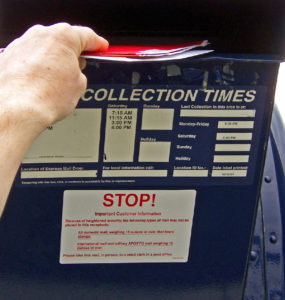 You’ve probably heard of the story about an old man and the cocoon. He watched the cocoon for days, and then it started to move. The butterfly struggled, so the old man slit the cocoon to let the butterfly out. The butterfly emerged underdeveloped with weak wings. The reason was that the butterfly needed to forcefully squeeze through a small whole to open circulation to its wings. The man deprived it of this process. The struggle for life gave it life.
You’ve probably heard of the story about an old man and the cocoon. He watched the cocoon for days, and then it started to move. The butterfly struggled, so the old man slit the cocoon to let the butterfly out. The butterfly emerged underdeveloped with weak wings. The reason was that the butterfly needed to forcefully squeeze through a small whole to open circulation to its wings. The man deprived it of this process. The struggle for life gave it life.
I have worked as an entertainment business manager since 1985. For the last 15 years I have helped artists strategically position themselves in new business ventures. What I have found is those who do not start out with easy financing (parents for example), tend to have a better chance of success. From a CPA business manager prospective, the adage, “easy come, easy go” has somewhat predicted the ventures. Even though our firm works as consultants, I usually take an emotional stake in my projects because I want to see them succeed. Most entertainment CPA business managers don’t do what we do, but come in after the business is funded. We have found that entering after the initial planning stage is too late.
From an entertainment CPA business manager point of view, here are some steps I suggest you take before opening up your next venture:
- Research your proposed industry thoroughly: You should start by speaking to people in the industry that you trust. Don’t be afraid to ask the difficult questions, and don’t bury your head in the sand. Try to find statistics or news of your competitors and the industry you are venturing in. Most important, speak to your target market. Find out what the industry is not providing to them, and what the industry is providing to them that is unnecessary.
- Find people in areas you lack expertise: If you have areas that are outside your expertise, bring in people who can fill those weaknesses. They may sign on and be a major stakeholder for you once you get started.
- Develop a strategic plan with a long range vision: Start 20 years or more from now and describe a vision that is more than making money. Are you out to change communication and entertainment by putting it in the palms of every person like Steve Jobs? Once your vision and horizon is set, work backwards and set milestones. You should end on your first day of business.
- Consolidate a team: If there are others that will help you, line them up and get them on board. It will show your investors that this business is more than you.
- Build a business plan: A business plan is not a strategy, but a management tool. It starts today and works forward for five years. It is essential that you include the cash flow of the first twelve months. This is when businesses struggle to stay afloat. Make sure your business plan milestones correspond to your strategic milestones. Insert your team bios along with your bio.
- Present the package: Now you can go to your money people. Practice your dog and pony show. A video or slide show can help bring the message across.
Like moving from a worm to a butterfly, artists must go through the “pain” before the doors open. The more pain you endure, then better informed you will be when you meet your investors and launch the enterprise.
As CPA entertainments business managers, we have seen failed ventures that did not take these steps. By engaging in this practice, it does not guaranty success, but will at least give you the wings to soar a little higher.

 CPAs work hard this time of year, but for those of you who do not (or cannot) get your taxes done in time, here are some options that are listed on the IRS site. But don’t wait, the post office will be a mess if you decide to mail something in.
CPAs work hard this time of year, but for those of you who do not (or cannot) get your taxes done in time, here are some options that are listed on the IRS site. But don’t wait, the post office will be a mess if you decide to mail something in. “Never give a sucker an even break,” is attributed to W.C Fields in the 1923 movie, Poppy. However, some say it represents the real personality of W.C. Fields as a
“Never give a sucker an even break,” is attributed to W.C Fields in the 1923 movie, Poppy. However, some say it represents the real personality of W.C. Fields as a  Tomorrow, as a Los Angeles CPA business manager, I will be merging two of my skills with a client. My entertainment business management skills, and my strategic planning skills. This client is a singer/songwriter who produced a music demo and video. My question to her was, “So what?” If you pursue the path of other musicians to acquire a contract, a 360 deal, you are no better than them, and may be just one of many homogeneous artists trying to make it.
Tomorrow, as a Los Angeles CPA business manager, I will be merging two of my skills with a client. My entertainment business management skills, and my strategic planning skills. This client is a singer/songwriter who produced a music demo and video. My question to her was, “So what?” If you pursue the path of other musicians to acquire a contract, a 360 deal, you are no better than them, and may be just one of many homogeneous artists trying to make it. Around 1993, as a CPA I played a pinnacle role in trying to bring 100,000 jobs to Los Angeles. I worked with four non-CPA partners, Chemical Bank, the Dept of Commerce, the Dept of Labor, and Senator Barbara Boxer to use the Export-Import Bank of the United States (EXIMBANK)to insure foreign movie presale contracts. We didn’t prevail.
Around 1993, as a CPA I played a pinnacle role in trying to bring 100,000 jobs to Los Angeles. I worked with four non-CPA partners, Chemical Bank, the Dept of Commerce, the Dept of Labor, and Senator Barbara Boxer to use the Export-Import Bank of the United States (EXIMBANK)to insure foreign movie presale contracts. We didn’t prevail. In the last few weeks I have received not one, not two, but three phone calls from actors who are looking for a Los Angeles Entertainment CPA. Two of the calls actually were the parents of child actors. The services they requested varied a little, but the one thing that they did not like was the fact that they could not find a Los Angeles Entertainment CPA who prepared tax returns. What they usually found were Entertainment Business Managers who wanted to charge 5% of their income to handle their financial affairs(including tax returns). As one mother told the business manager, “What could you possibly do to justify taking 5% of my daughter’s income? She doesn’t own a house, or require any more than a few bills to be paid a month.”
In the last few weeks I have received not one, not two, but three phone calls from actors who are looking for a Los Angeles Entertainment CPA. Two of the calls actually were the parents of child actors. The services they requested varied a little, but the one thing that they did not like was the fact that they could not find a Los Angeles Entertainment CPA who prepared tax returns. What they usually found were Entertainment Business Managers who wanted to charge 5% of their income to handle their financial affairs(including tax returns). As one mother told the business manager, “What could you possibly do to justify taking 5% of my daughter’s income? She doesn’t own a house, or require any more than a few bills to be paid a month.” I couldn’t believe it. Well, actually I could, but I didn’t want to.
I couldn’t believe it. Well, actually I could, but I didn’t want to.  My grandfather was Alfano the Great. In the 1920’s he walked between 2 eight story buildings with no net. In addition, he walked on his hands, rode a bicycle and did wheelies. All for a few bucks. Obviously, he never fell, or I wouldn’t be here.
My grandfather was Alfano the Great. In the 1920’s he walked between 2 eight story buildings with no net. In addition, he walked on his hands, rode a bicycle and did wheelies. All for a few bucks. Obviously, he never fell, or I wouldn’t be here. In the early 1970s, I watched a Stanford professor choose Jim Plunkett, (Stanford’s star quarterback) to demonstrate perception and the brain. The professor placed a pair of glasses on Jim that caused his vision to be distorted, shifting everything he sees to the right about 20 degrees. Jim missed his attended receiver throwing consistantly to the right by 20 degrees.
In the early 1970s, I watched a Stanford professor choose Jim Plunkett, (Stanford’s star quarterback) to demonstrate perception and the brain. The professor placed a pair of glasses on Jim that caused his vision to be distorted, shifting everything he sees to the right about 20 degrees. Jim missed his attended receiver throwing consistantly to the right by 20 degrees. We were called the Mini Playboys. Three ten year old musicians who temporarily put down their rock roots to play old standards, big band, and Italian songs. The band consisted of a drum, guitar, and accordion. We almost never played like this for our friends for the obvious reasons, but played at old folks parties and restaurants. Heck, we each earned $5.00 an hour in 1967 when minimum wage was $1.40. Great money! Our band focused on a strategy to hit a particular niche market, and it worked for 2 years until we went our separate ways.
We were called the Mini Playboys. Three ten year old musicians who temporarily put down their rock roots to play old standards, big band, and Italian songs. The band consisted of a drum, guitar, and accordion. We almost never played like this for our friends for the obvious reasons, but played at old folks parties and restaurants. Heck, we each earned $5.00 an hour in 1967 when minimum wage was $1.40. Great money! Our band focused on a strategy to hit a particular niche market, and it worked for 2 years until we went our separate ways.